新概念英语第四册内容【Lesson1、2、3】|每日热闻
新概念英语第四册内容【Lesson1、2、3】已发布,欢迎大家查看。新概念英语第四册内容主要针对的是基础比较薄弱的同学,为了方便同学们可以更好地巩固英语基础,小编还整理了新概念英语第四册课文、新概念英语第四册音频相关内容,便于同学们一起学习!
 (资料图片)
(资料图片)
Unit 1 新概念英语4 Lesson 1 Finding fossil man 发现化石人
Why are legends handed down by storytellers useful?
We can read of things that happened 5,000 years ago in the Near East, where people first learned to write. But there are some parts of the word where even now people cannot write. The only way that they can preserve their history is to recount it as sagas -- legends handed down from one generation of another. These legends are useful because they can tell us something about migrations of people who lived long ago, but none could write down what they did. Anthropologists wondered where the remote ancestors of the Polynesian peoples now living in the Pacific Islands came from. The sagas of these people explain that some of them came from Indonesia about 2,000 years ago.
But the first people who were like ourselves lived so long ago that even their sagas, if they had any, are forgotten. So archaeologists have neither history nor legends to help them to find out where the first "modern men" came from.
Fortunately, however, ancient men made tools of stone, especially flint, because this is easier to shape than other kinds. They may also have used wood and skins, but these have rotted away. Stone does not decay, and so the tools of long ago have remained when even the bones of the men who made them have disappeared without trace.
ROBIN PLACE Finding fossil man
fossil man (title)
adj. 化石人
recount
v. 叙述
saga
n. 英雄故事
legend
n. 传说,传奇
migration
n. 迁移,移居
anthropologist
n. 人类学家
archaeologist
n. 考古学家
ancestor
n. 祖先
Polynesian
adj.波利尼西亚(中太平洋之一群岛)的
Indonesia
n. 印度尼西亚
flint
n. 燧石
rot
n. 烂掉
参考译文
我们从书籍中可读到5,000 年前近东发生的事情,那里的人最早学会了写字。但直到现在,世界上有些地方,人们还不会书写。 他们保存历史的办法是将历史当作传说讲述,由讲述人一代接一代地将史实描述为传奇故事口传下来。人类学家过去不清楚如今生活在太平洋诸岛上的波利尼西亚人的祖先来自何方,当地人的传说却告诉人们:其中一部分是约在2,000年前从印度尼西亚迁来的。
但是,和我们相似的原始人生活的年代太久远了,因此,有关他们的传说既使有如今也失传了。于是,考古学家们既缺乏历史记载,又无口头传说来帮助他们弄清最早的“现代人”是从哪里来的。
然而, 幸运的是,远古人用石头制作了工具,特别是用燧石,因为燧石较之其他石头更容易成形。他们也可能用过木头和兽皮,但这类东西早已腐烂殆尽。石头是不会腐烂的。因此,尽管制造这些工具的人的骨头早已荡然无存,但远古时代的石头工具却保存了下来。
Lesson 2
Spare that spider
不要伤害蜘蛛
How much of each year do spiders spend killing insects?
Why, you may wonder, should spiders be our friends? Because they destroy so many insects, and insects include some of the greatest enemies of the human race. Insects would make it impossible for us to live in the world; they would devour all our crops and kill our flocks and herds, if it were not for the protection we get from insect-eating animals. We owe a lot to the birds and beasts who eat insects but all of them put together kill only a fraction of the number destroyed by spiders. Moreover, unlike some of the other insect eaters, spiders never do the harm to us or our belongings.
Spiders are not insects, as many people think, nor even nearly related to them. One can tell the difference almost at a glance, for a spider always has eight legs and insect never more than six.
How many spiders are engaged in this work no our behalf? One authority on spiders made a census of the spiders in grass field in the south of England, and he estimated that there were more than 2,250,000 in one acre; that is something like 6,000,000 spiders of different kinds on a football pitch. Spiders are busy for at least half the year in killing insects. It is impossible to make more than the wildest guess at how many they kill, but they are hungry creatures, not content with only three meals a day. It has been estimated that the weight of all the insects destroyed by spiders in Britain in one year would be greater than the total weight of all the human beings in the country.
T. H. GILLESPLE Spare that spider from The Listener
New words and expressions
beast
n. 野兽
census
n. 统计数字
acre
n. 英亩
content
adj. 满足的
参考译文
你可能会觉得奇怪, 蜘蛛怎么会是我们的朋友呢?因为它们能消灭那么多的昆虫,其中包括一些人类的大敌,要不是人类受一些食虫动物的保护,昆虫就会使我们无法在地球上生活下去,昆虫会吞食我们的全部庄稼,杀死我们的成群的牛羊。我们要十分感谢那些吃昆虫的鸟和兽,然而把它们所杀死的昆虫全部加在一起也只相当于蜘蛛所消灭的一小部分。此外,蜘蛛不同于其他食虫动物,它们丝毫不危害我们和我们的财物。
许多人认为蜘蛛是昆虫,但它们不是昆虫,甚至与昆虫毫无关系。人们几乎一眼就能看出二者的差异,因为蜘蛛都是8条腿,而昆虫的腿从不超过6条。
有多少蜘蛛在为我们效力呢?一位研究蜘蛛的对英国南部一块草坪上的蜘蛛作了一次调查。他估计每英亩草坪里有225万多只蜘蛛。这就是说,在一个足球场上约有600万只不同种类的蜘蛛。蜘蛛至少有半年在忙于吃昆虫。它们一年中消灭了多少昆虫,我们简直无法猜测,它们是吃不饱的动物,不满意一日三餐。据估计,在英国蜘蛛一年里所消灭昆虫的重量超过这个国家人口的总重量。
新概念英语4 Lesson 3
Matterhorn man
马特霍恩山区人
What was the main objective of early mountain climbers?
Modern alpinists try to climb mountains by a route which will give them good sport, and the more difficult it is, the more highly it is regarded. In the pioneering days, however, this was not the case at all. The early climbers were looking for the easiest way to the top, because the summit was the prize they sought, especially if it and never been attained before. It is true that during their explorations they often faced difficulties and dangers of the most perilous nature, equipped in a manner with would make a modern climber shudder at the thought, but they did not go out of their way to court such excitement. They had a single aim, a solitary goal -- the top!
It is hard for us to realize nowadays how difficult it was for the pioneers. Except for one or two places such as Zermatt and Chamonix, which had rapidly become popular, Alpine village tended to be impoverished settlements cut off from civilization by the high mountains. Such inns as there were generally dirty and flea-ridden; the food simply local cheese accompanied by bread often twelve months old, all washed down with coarse wine. Often a valley boasted no inn at all, and climbers found shelter wherever they could -- sometimes with the local priest (who was usually as poor as his parishioners), sometimes with shepherds or cheese-makers. Invariably the background was the same: dirt and poverty, and very uncomfortable. For men accustomed to eating seven-course dinners and sleeping between fine linen sheets at home, the change to the Alps must have very hard indeed.
WALTER UNSWORTH Matterhorn Man
New words and expressions 生词和短语
Matterhorn
n. 马特霍恩峰(阿尔卑斯山之一,在意大利和瑞士边境)
alpinist
n. 登山运动员
pioneer
v. 开辟,倡导;
n. 先锋,开辟者
summit
n. 顶峰
attain
v. 到达
perilous
adj. 危险的
shudder
v. 不寒而栗
court
v. 追求
solitary
adj. 的
impoverish
v. 使贫困
Alpine
adj. 阿尔卑斯山的
flea-ridden
adj. 布满跳蚤的
coarse
adj. 粗劣的
boast
v. 自恃有
parishioner
n. 教区居民
shepherd
n. 牧羊人
linen
n. 亚麻布床单
the Alps
n. 阿尔卑斯山脉
参考译文
现代登山运动员总想找一条能够给他们带来运动乐趣的路线来攀登山峰。他们认为, 道路愈艰险愈带劲儿。然而,在登山运动的初期,全然不是这种情况。早期登山者所寻找的是通往山顶的最方便的途径,因为顶峰特别是前人未曾到过的顶峰 -- 才是他们寻求的目标。确实,在探险中他们经常遇到惊心动魄的困难和危险,而他们装备之简陋足以使现代登山者一想起来就胆战心惊。但是,他们并非故意寻求这种刺激,他们只有一个目标,的目标 -- 顶峰!
我们今天很难想像昔日的登山先驱们是多么艰苦。除了泽曼特和夏蒙尼等一两个很快出了名的地方外,阿尔卑斯山山区的小村几乎全是高山环抱、与世隔绝的穷乡僻壤。那里的小客栈一般都很肮脏,而且跳蚤猖獗。 食物是当地的干酪和通常存放了一年之久的面包,人们就着劣酒吞下这种食物。山谷里常常没有小客栈,登山者只好随遇而安。有时同当地牧师 (他通常和他的教民一样穷)住在一起,有时同牧羊人或制乳酪的人住在一起。无论住在哪儿,情况都一样:肮脏、贫穷,极其不舒适。对于过惯了一顿饭吃7道菜、睡亚麻细布床单的人来说,变换一下生活环境来到阿尔卑斯山山区,那一定是很艰难的。
以上就是为大家整理的“新概念英语第四册手册【Lesson1、2、3】”,更多新概念英语的干货内容,欢迎访问新东方新概念英语课堂,查看新概念英语第四册答案、新概念英语第四册详解和新概念英语第四册听力可供参考。祝同学们学习新概念英语4顺利!
新东方在线英语水平测试
X 关闭
推荐内容
- 新概念英语第四册内容【Lesson1、2、3】|每日热闻
- 天天快资讯:日经225指数低开0.2%
- 吴晓波账号被禁言|环球实时
- 信息动态:教程:怎么取消QQ会员-焦点
- 齐心协力保障电力供应_世界热消息
- 全球新资讯:亚运会AD就这?TES惨遭横扫,WE状态火热,接连面对强敌
- 【速看料】我国房子够30亿人居住?未来房价“涨”还是“跌”,官媒回应了!
- 当前速读:红米手机耳机安全音量
- 延禧秘传花前忆清梦什么时候出 公测上线时间预告-当前看点
- 美团:王慧文因“个人健康原因”申请辞去美团董事
最近更新
-

新概念英语第四册内容【Lesson1、2、3】|每日热闻
资讯 -

天天快资讯:日经225指数低开0.2%
资讯 -

吴晓波账号被禁言|环球实时
资讯 -

信息动态:教程:怎么取消QQ会员-焦点
资讯 -

齐心协力保障电力供应_世界热消息
资讯 -

全球新资讯:亚运会AD就这?TES惨遭横扫,WE状态火热,接连面对强敌
资讯 -

【速看料】我国房子够30亿人居住?未来房价“涨”还是“跌”,官媒回应了!
资讯 -

当前速读:红米手机耳机安全音量
资讯 -

延禧秘传花前忆清梦什么时候出 公测上线时间预告-当前看点
资讯 -

美团:王慧文因“个人健康原因”申请辞去美团董事
资讯 -

中国银行宁波市分行被罚220万,涉经营贷违规流入房地产领域等-速看料
资讯 -

安顺市西秀区人民法院集中公开宣判3起涉毒品犯罪案件-每日速看
资讯 -

【短期融资券新发公告】23泉州交通SCP005今日发布发行公告|今日热文
资讯 -

世界即时:毕业典礼送什么给闺蜜_毕业礼物送什么给闺蜜
资讯 -

南国置业董事长武琳辞职 总经理李明轩接任_环球百事通
资讯 -

诺兰德有什么特殊玩法
资讯 -

环球快讯:永州中院公开宣判一起重大毒品犯罪案件:1人死刑,1人死缓,2人无期
资讯 -

老师凡尔赛式秀学生高考成绩 全班仅3人没上600分 快消息
资讯 -

韩国电池制造商采用磷酸铁锂电池|全球观天下
资讯 -

国乒00后拒绝逆转,3比1击败世界第5,马龙为他喝彩,三局分差2分
资讯 -

松下推出全新HCC-R600A智能衣柜 可清洁和熨烫|天天资讯
资讯 -

俄罗斯莫斯科交易所26日开盘后,卢布兑美元汇率自2022年3月29日以来首次突破87比1 微资讯
资讯 -

黑蛋快跑故事梗概_黑蛋快跑 今日热闻
资讯 -

每日讯息!15月我国造船业三大指标全面增长 国际市场份额保持领先
资讯 -

2023河北省普通高校招生录取分数线(普通类)
资讯 -

当前快播:6月26日上海宏奇塑PMMA最新动态
资讯 -

凯赛生物66亿定增补流,招商局集团曲线战投,给钱给订单
资讯 -

全球速看:蔡徐坤被曝要求女生打胎
资讯 -

粉色短款羽绒服搭配什么颜色毛衣(粉色短款羽绒服怎么搭配简介介绍)
资讯 -

大众集团首席执行官承认奥迪落后竞争对手,称软件问题导致没有竞争力
资讯 -

A股异动丨天音控股跌停 控股股东的一致行动人收到法院传票
资讯 -

新金路: 独立董事关于公司2023年第五次临时董事局会议相关事项的事前认可及独立意见
资讯 -

真·飞船来了!俄罗斯索契海平面天空出现海市蜃楼
资讯 -

当前快报:斗南花市首个“云花”联调室成立
资讯 -

教育部发布2023年高考志愿填报十问十答
资讯 -

每日热闻!老猫(小小说)
资讯 -
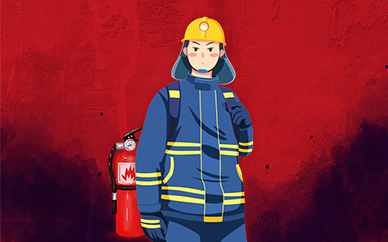
全球微速讯:中建一局与济南市市中区签署合作协议
资讯 -

2023年海南高考普通类考生成绩分布表来了|世界新动态
资讯 -
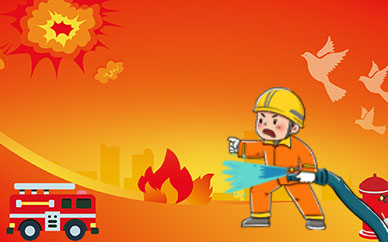
当前通讯!社会信用评价A级企业可享多项激励措施 厦门7月施行新办法
资讯 -

天天观点:6月25日焦点图
资讯 -

大类资产轮动策略
资讯 -

手机QQ支持绑定微信号:微信可直接登录QQ
资讯 -

燃气泄漏时,应当这样避险!
资讯 -

亚新物业所持亚新房产建设股份比例增加至95%
资讯 -

世界通讯!从盗窃犯到普京大厨,从冲锋陷阵到反戈一击……普里戈任:令人琢磨不透的人
资讯 -

热议:全球都在加息,为何我们却在降息?
资讯 -
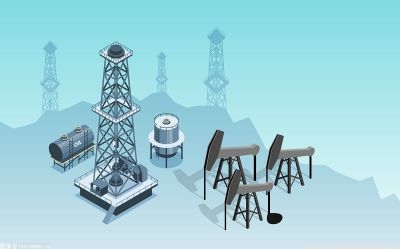
加快推进新能源汽车产业集群建设_当前速递
资讯 -

护的繁体字怎么写书法(喜欢的繁体字怎么写) 当前要闻
资讯 -

天天快资讯丨酱油牛肉家常做法?
资讯 -

公益诉讼检察守护岐澳古道
资讯 -
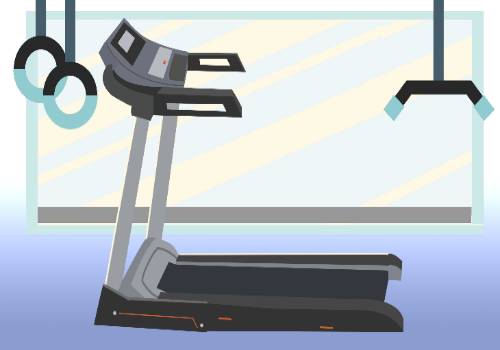
【世界快播报】祥生控股集团:安永辞任公司核数师,已接获港交所复牌指引
资讯 -

炒股有道_关于炒股有道介绍
资讯 -

精灵复兴单机版怎么调经验_精灵复兴单机版 播报
资讯 -

环球热头条丨保罗联手库里?火箭20顺位捡漏,赚大发了啊!
资讯 -

佛山北京开放城市NGP 小鹏P5推送全新Xmart OS 3.5.0|热点评
资讯 -

当前消息!果师兄恢复大师恢复已删微信好友的详细方法
资讯 -

【全球新视野】最大灰色在跌宕起伏的临界点唱歌
资讯 -

螃蟹粽、虾粽、兔子粽……90后姑娘传承老爸“花式包粽法”
资讯 -

普京发表电视讲话:俄武装力量已收到必要命令,以消灭那些组织武装暴动的人-世界快播
资讯 -

全球通讯!戴楼街道:“三驾马车”送书到田头助力乡村文化振兴
资讯 -
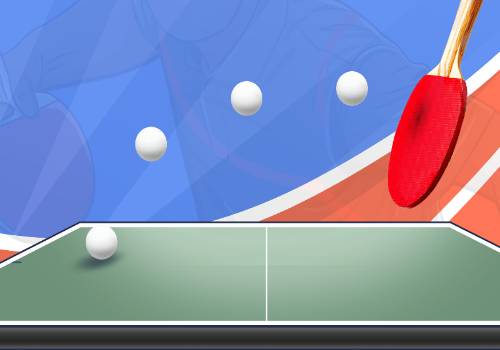
may和might的区别和联系_may和might的区别_天天聚看点
资讯 -

鲧伯取土_关于鲧伯取土简述_速看料
资讯 -

观速讯丨一键备份ghost软件_一键备份ghost
资讯 -

最新资讯:我为什么让朋友不要买二手公寓
资讯 -

这份心理调适指南,送给高考后的你们
资讯 -

华为4g手机哪款好用(华为4g手机哪款好)-全球报资讯
资讯 -

新消息丨女友把“荷花”扔油锅里炸,全家都希望我制止,出锅后大家都在和我抢
资讯 -

新7号曝光...曼联考虑让加纳乔新赛季穿7号
资讯 -
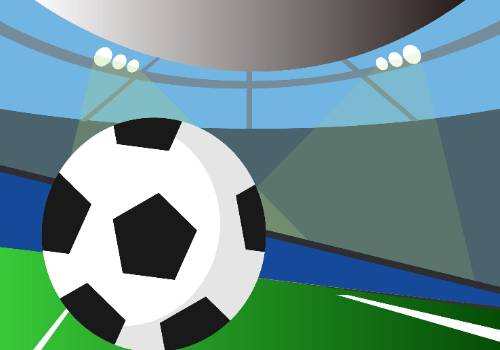
ssw泰隆炫彩(ssw泰隆)-天天热闻
资讯 -

世界播报:pt950铂金回收价格今日多少钱一克(2023年06月23日)
资讯 -

新资讯:请问1000毫克等于多少克 1000毫升等于多少克
资讯 -

双相抑郁是什么意思_抑郁是什么意思
资讯 -

每日速讯:通道县开展夜市餐饮、烧烤、摊点等场所燃气安全专项突击大排查
资讯 -

端午假期首日 迎来交通出行高峰 世界热文
资讯 -

0039s是什么标准 0039 当前视讯
资讯 -

天天新消息丨今天,怀柔“满”精彩!
资讯 -

西山区教育体育局严正声明|全球即时看
资讯 -

《暗黑破坏神4》装备交易心得_环球速看料
资讯 -

旺运旺财简单小妙招(旺财运去霉运的方法)
资讯 -

华北黄淮多地最高温突破历史极值 专家解释原因_环球时快讯
资讯 -

美图手机开机慢的解决办法
资讯 -

焦点滚动:联邦之城攻略(联邦之城)
资讯 -

iQOO 11 Pro如何用网易云音乐自定义手机铃声
资讯 -

应急局单位有实权(应急管理局有实权吗简介介绍)
资讯 -

【明日方舟/陈/微病娇】当博士与诗怀雅出轨被陈发现
资讯 -

殷切期望的意思及用法_期望的意思-全球观点
资讯 -

土耳其央行2年来首次加息
资讯 -

全球热推荐:各地高考成绩今天起陆续公布
资讯 -

每日热闻!【机构调研记录】中海基金调研广州发展
资讯 -

环球速读:卡龙沟风景区空间布局_卡龙沟风景区
资讯 -

杨幂又带火了“黑丝”,素人街拍都跟风,回头率高还显瘦又高级
资讯 -

ai怎么修改文字形状_平面设计AI怎么修改文字
资讯 -

谴责是什么意思解释一下 谴责是什么意思_世界即时看
资讯 -

大学生求职意向“群体性下沉”,谁说只有大城市才有前途?
资讯 -
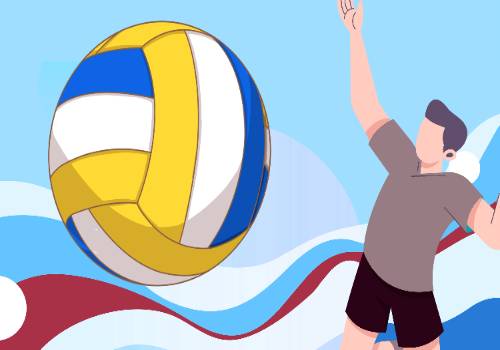
苹果微信旧版本下载6.5.8_iphone微信旧版本下载
资讯 -
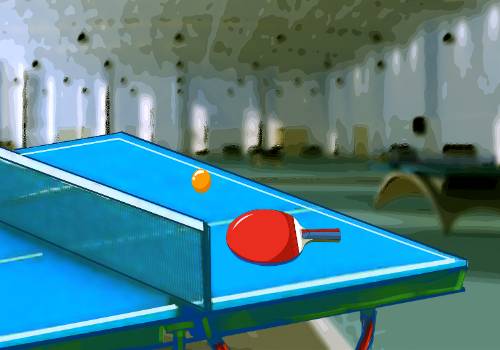
全球实时:鲜脆好吃泡菜鹅肠_关于鲜脆好吃泡菜鹅肠简述
资讯 -

如何进行网上购买火车票_如何进行网上购买火车票
资讯 -

新疆博湖:龙舟竞渡迎端午
资讯 -

【世界热闻】徐欢顾明樊阿满小说(徐欢)
资讯 -

鸡精好还是味精好区别在哪(鸡精好还是味精好)-全球观热点
资讯
Copyright © 2015-2022 青年洁具网 版权所有
备案号:皖ICP备2022009963号-20
联系邮箱:39 60 291 42@qq.com


